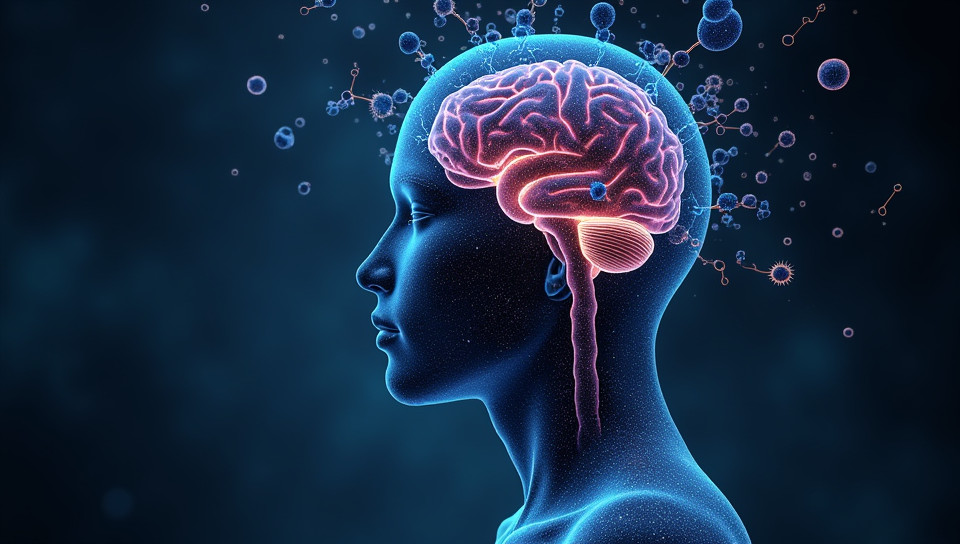Psychobiotics interact with brain chemistry 88%

The Gut-Brain Connection: How Psychobiotics Influence Our Mood and Behavior
As we navigate the complexities of modern life, it's becoming increasingly clear that our physical and mental health are intricately linked to the health of our gut microbiome. For decades, researchers have been studying the relationship between the bacteria in our digestive system and our brain chemistry, and the findings are nothing short of revolutionary.
The Discovery of Psychobiotics
In recent years, scientists have identified a subset of microorganisms that have a profound impact on our mental health: psychobiotics. These beneficial bacteria have been shown to produce neurotransmitters and hormones that influence our mood, motivation, and behavior.
How Psychobiotics Interact with Brain Chemistry
So how do psychobiotics interact with brain chemistry? The process begins when these beneficial bacteria colonize the gut lining and begin to break down food particles. As they feed on fiber-rich foods like fruits, vegetables, and whole grains, they produce short-chain fatty acids (SCFAs) such as butyrate, propionate, and acetate.
- These SCFAs can cross the blood-brain barrier and interact with brain cells
- They can also stimulate the vagus nerve, which plays a key role in regulating mood, appetite, and sleep
- Additionally, psychobiotics can produce neurotransmitters like serotonin and dopamine, which are involved in mood regulation and motivation
The Benefits of Psychobiotic-Rich Foods
So what foods can we eat to support the growth of these beneficial bacteria? Research suggests that a diet rich in fiber from whole, unprocessed foods is essential for maintaining a healthy gut microbiome.
- Fruits like berries, apples, and bananas are high in prebiotic fiber
- Vegetables like broccoli, carrots, and leafy greens are also rich in prebiotics
- Whole grains like brown rice, quinoa, and whole wheat bread provide additional fiber and nutrients for beneficial bacteria to thrive
Conclusion
The relationship between psychobiotics and brain chemistry is a complex one, but the implications are clear: by feeding our gut microbiome with fiber-rich foods, we can support the growth of these beneficial bacteria and promote better mental health. As research continues to uncover the secrets of the gut-brain axis, it's becoming increasingly clear that the health of our gut microbiome holds the key to unlocking a happier, healthier life.
- Created by: Marcia Costa
- Created at: Dec. 1, 2024, 1:38 p.m.
- ID: 16408







